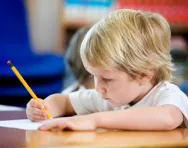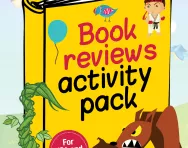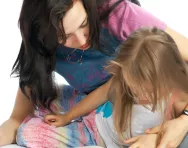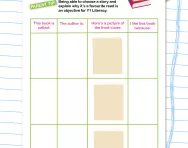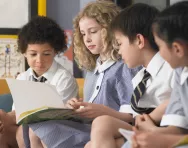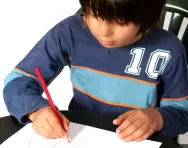Important update from TheSchoolRun
For the past 13 years, TheSchoolRun has been run by a small team of mums working from home, dedicated to providing quality educational resources to primary school parents. Unfortunately, rising supplier costs and falling revenue have made it impossible for us to continue operating, and we’ve had to make the difficult decision to close. The good news: We’ve arranged for another educational provider to take over many of our resources. These will be hosted on a new portal, where the content will be updated and expanded to support your child’s learning.
What this means for subscribers:
- Your subscription is still active, and for now, you can keep using the website as normal — just log in with your usual details to access all our articles and resources*.
- In a few months, all resources will move to the new portal. You’ll continue to have access there until your subscription ends. We’ll send you full details nearer the time.
- As a thank you for your support, we’ll also be sending you 16 primary school eBooks (worth £108.84) to download and keep.
A few changes to be aware of:
- The Learning Journey weekly email has ended, but your child’s plan will still be updated on your dashboard each Monday. Just log in to see the recommended worksheets.
- The 11+ weekly emails have now ended. We sent you all the remaining emails in the series at the end of March — please check your inbox (and spam folder) if you haven’t seen them. You can also follow the full programme here: 11+ Learning Journey.
If you have any questions, please contact us at [email protected]. Thank you for being part of our journey it’s been a privilege to support your family’s learning.
*If you need to reset your password, it will still work as usual. Please check your spam folder if the reset email doesn’t appear in your inbox.
Book reports: what parents need to know
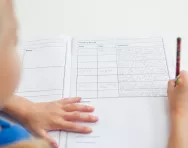
What is a book report or book review?
A book report or review is your child’s written critique of a book that they have read. Book reports tend to focus slightly more on describing what the book is about, while reviews are more concerned with your child’s opinion on the book. Generally, book reports and reviews will include:
- The title and author
- An overview of the story: characters, plot, setting, etc
- What your child liked and didn’t like about the book
- Whether they would recommend it, and to whom
What’s the point of book reports?
In some schools, book reports or reviews are regular homework tasks; in others, children may only write them occasionally, for example at the end of a literacy unit focusing on a particular book.
‘The main objective is for children to show their deeper understanding of a text, and also to demonstrate their reading preferences and think in more depth about the sorts of books they like reading,’ says teacher and English consultant Charlotte Reed.
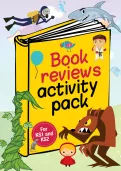
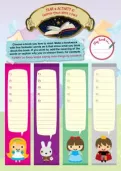
Claim A FREE Book Reviews Activity Pack!
- A huge collection of creative writing & reading comprehension resources
- Explore texts, deepen understanding, share opinions
- For Year 1 to Year 6
Book reports also help teachers assess children’s comprehension of their reading books, and ensure that books are read properly, not just skimmed over. And, of course, they help improve literacy skills such as spelling, grammar and vocabulary.
What sort of standard is expected?
Book reports tend to be more commonly assigned in Key Stage 2 than in Key Stage 1, and it goes without saying that they will become longer and more in depth as your child progresses through primary school. For example:
- In Reception, a book report might simply be a drawing inspired by the book, perhaps with a simple sentence written underneath.
- In Year 1, your child might be given a printed template with spaces for the title, author and illustrator, and a couple of sentence starters such as: ‘The main characters in this book are…’ and ‘I liked this book because…’
- In Year 3, your child might be asked to divide their book review up with subheadings such as plot, characters, setting, my opinion.
- In Year 6, your child might be required to review books independently, using varied sentence structures and vocabulary – so, saying the book was ‘exciting’ or ‘thrilling’ rather than just ‘good.’
Helping your child to write a book report
- The first step when helping your child to write a book report is to make sure they've read and understood the book. Asking them questions to answer verbally before putting pencil to paper will help them clarify their thoughts on the book. If it’s a longer book, encourage them to make notes as they're reading.
- Use book review templates (you can download some below) to use as a basis for the report. Prompt your child by asking questions about the book (‘What genre does this book fit into? Who would you recommend it to?’), or, for younger children, give them some sentence openers.
- You could also make a set of cards with useful words (mystery, adventure, exciting, funny, sad, scary etc) that they can use when writing reviews.
- Another good tip is to read other children’s book reviews on websites such as Reading Zone, Toppsta and Spaghetti Book Club to familiarise your child with the format of a book report, and help them consolidate their own opinions of the book.
Top tips for making book reports fun
Unless your child’s teacher has specified a format, there are lots of ways to make writing book reports more interesting.
‘Your child could draw and annotate a picture of their favourite scene from the book, or write an emotional response from the viewpoint of one of the characters,’ Charlotte suggests. Other formats could include a newspaper report or an imagined interview with a character.
Another good way to make book reports fun is to write mini reviews on Post-It notes. ‘Your child can then stick these inside book covers so he remembers what he thought of them – or, in the case of library books, so other children can read them,’ says Charlotte.
To motivate your child, encourage them to send reviews to the author. ‘Lots of authors blog and tweet, so they could send reviews online, or by traditional letter,’ Charlotte says. ‘Most will write back, and this could be the start of a fantastic collection of correspondence from authors.’ And encourage your child to share their book reviews online, too: ‘It’s good for them to see their own work on the internet, and helpful to other children, as well,’ Charlotte adds.




